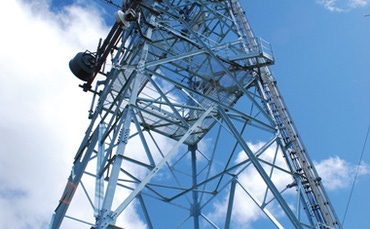eAccess and O2 plan 4G LTE trials in Japan and UK
Japanese operator eAccess has announced that it has begun trialling a 4G LTE service in preparation for a launch in the country in March 2012. Meanwhile Telefonica’s UK arm, O2 has also launched a 4G trial in London. The operator will be using the trial to shape its plans for a commercial 4G rollout, following Ofcom’s 4G spectrum auction, which is expected to take place sometime in 2012.
November 14, 2011

Japanese operator eAccess has announced that it has begun trialling a 4G LTE service in preparation for a launch in the country in March 2012. Meanwhile Telefonica’s UK arm, O2 has also launched a 4G trial in London. The operator will be using the trial to shape its plans for a commercial 4G rollout, following Ofcom’s 4G spectrum auction, which is expected to take place sometime in 2012.
eAccess’s LTE network will use the country’s 1.7GHz band, and the operator has been running trials of the technology in the Kanto area. The trial is intended to evaluate and verify quality of telecommunication and LTE with the maximum downlink speed of 75Mbps and the maximum uplink speed of 25Mbps.
The launch of LTE is currently underway at existing 3.9G (HSPA+) base stations, with a plan to offer new high speed networks by upgrading some of the base stations to make them compatible with LTE. The operator said that this would allow it to offer ultra high speed LTE networks promptly, without establishing separate base stations that are compatible with LTE.
Currently, NTT DoCoMo is the only mobile operator to offer LTE services in Japan, which it launched last year.
In the UK, O2 said it will switch on the first LTE network in London today, for a trial that will run for the next nine months. Throughout November 2011, over 25 4G sites will go live across London covering a combined area of 40 square kilometres.
The 4G trial will use the 2.6GHz spectrum band under a Test and Development licence granted to O2 by regulator Ofcom, and is an extension of O2’s earlier 4G trials in Slough that have been running since 2009. The 2.6GHz band supports the maximum 20MHz RF bandwidth for LTE, which allows 4G speeds of up to 150Mbps.
O2 will provide triallists with Samsung B3730 mobile broadband dongles, supporting speeds of up to 100Mbps, and well as 4G personal wireless hotspots and handsets from a number of other vendors.
Hundreds of consumers, businesses and venue owners will be able to access the network, and The O2 Arena will have its own dedicated 4G internal and external sites providing coverage to The O2 Arena and surrounding area.
“Our work in London will give us a better understanding of the capabilities of 4G technology and will allow us to explore the superfast benefits it will bring to people and industry across the UK. This 4G trial is the next step on our journey to a smarter network – a network that offers a seamless, connected experience across multiple devices, locations and services,” said Ronan Dunne, CEO at O2 UK.
“The forthcoming spectrum auction is a watershed moment for the UK mobile industry, which will see the release of the airwaves capable of powering a whole range of exciting next-generation mobile services. We are actively engaged in the auction and are supportive of a fair process that meets the Government’s and Ofcom’s planned timeline.”
Cambridge Broadband Networks (CBNL) supplied the multipoint microwave backhaul solution for O2’s trial, and Lance Hiley, VP market strategy, explained that unlike Orange’s 4G trial that was based in Cornwall, O2’s 4G trial will work to address the issue of mobile broadband in one of the toughest environments in the world; the dense urban streets of London.
“Here, literally millions of smartphones battle for their fair share of mobile broadband every day. Being the first trial of its kind to take place in the UK, the successes and challenges that O2 encounters and overcomes, will provide the foundation of knowledge for the LTE networks of the future,” he said.
He added that O2 is using the vendor’s VectaStar solution, which works the same way the mobile network does; it has a central hub with several access points.
“Each access point can connect to several sites which reduces the number of antennas required and reduces the time to install from several days to several hours.”
The news comes just a few days after online retail giant eBay submitted its Mobile Manifesto to the UK government.
The document urges the government to speed up the rollout of LTE services in the country, citing research conducted for eBay by retail expert Verdict, which shows mobile shopping could deliver a £4.5bn boost to Britain’s economy by 2016, and a further £13bn by 2021.
The research suggests that consumers are being held back from spending, owing to frustrations with the speed at which they can complete everyday functions like browsing and shopping on their smartphones. Half of the 2,000 consumers questioned (45 per cent) said that they were dissatisfied with the speed at which they can download data on their mobile phone.
About the Author(s)
You May Also Like








.png?width=300&auto=webp&quality=80&disable=upscale)


_1.jpg?width=300&auto=webp&quality=80&disable=upscale)


.png?width=800&auto=webp&quality=80&disable=upscale)